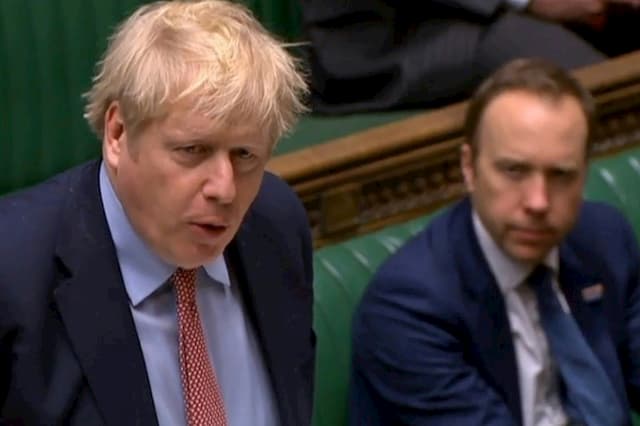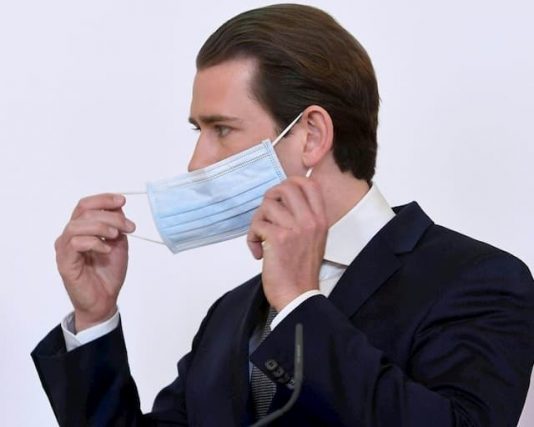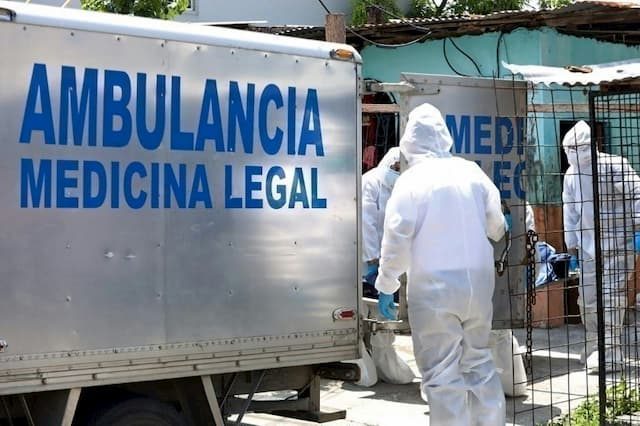Coronavirus Covid-19: Boris Johnson Placed in Intensive Care, Situation Worsens in the Rest of the World

The British Prime Minister, Boris Johnson was placed, contaminated by the coronavirus for ten days, was placed in intensive care. To date, he is said to be “seriously ill”.
The health of Boris Johnson, a patient of the Coronavirus Covid-19, has brutally deteriorated: the British Prime Minister is in intensive care this Tuesday, April 7, 2020, while the United States already has more than 10,700 dead and the expected decline has not really been confirmed in Europe.
” Seriously ill “
The concern is strong in the United Kingdom, after the admission of its leader in an intensive care unit Monday evening. “There is no doubt that the turn of events means that Boris Johnson is seriously ill,” said Derek Hill, professor of medical imaging at University College London, quoted by Science Media Center as of Monday evening.
The conservative is the only head of state or government of a great power to have contracted the coronavirus disease, which has killed more than 73,000 people worldwide. The 55-year-old British Prime Minister did not hesitate in early March, when the pandemic was already raging, to taunt the virus by claiming to continue “shaking hands with everyone”.
Asked “to replace it where necessary”, the British chief diplomat Dominic Raab pledged Monday to act to “defeat the coronavirus” during the period of hospitalization of its chief.

Messages of support poured in from all sides, from the side of the Europeans or Donald Trump, who wished a speedy recovery to his “very good friend”.
“When you are placed in intensive care, it is very very serious with this disease,” noted the American president, who also recently minimized the severity of the epidemic.
Donald Trump souhaite un prompt rétablissement à son “ami” Boris Johnson, après l’admission en soins intensifs du Premier ministre britannique, atteint du coronavirus #AFP pic.twitter.com/zl2RV6U9YF
— Agence France-Presse (@afpfr) April 6, 2020
What is the situation abroad?
In the United States, the number of contaminations now borders on 365,000 cases. Donald Trump urged his compatriots to prepare to “suffer the peak of this terrible pandemic”.
For its part, with more than 50,000 people tested positive for Covid-19 and 5,373 deaths, the United Kingdom has become one of the European countries hardest hit.

However, Europe, the continent hardest hit by the pandemic, hoped for confirmation of the glimmer of hope of the weekend, when the number of deaths had dropped in the two countries in the front line, Italy and Spain.
But if the trend continued in Spain, the balance sheet went up again in Italy Monday, with 636 additional deaths in 24 hours. And France has also announced a significant number of deaths, 833 more, or 8,911 since early March.
No new cases in China
On the other hand, China recorded no new daily death for the first time since the publication of the statistics of victims of the coronavirus, started in January, announced on Tuesday the health authorities.
In Wuhan, the cradle of the epidemic, restrictions on leaving the city are supposed to be lifted Wednesday, two and a half months after the quarantine of the metropolis of 11 million inhabitants. But only healthy people will be allowed to leave the city in central China, even if the capital, Beijing, remains closed to travellers from Hubei, Wuhan province.
The Japanese neighbour, for its part, is expected to enter a state of emergency Tuesday, in seven regions of the Archipelago, including Tokyo, a measure accompanied by a plan to help the economy of 915 billion euros. The state of emergency will allow the authorities of the regions concerned to ask the inhabitants to stay at their homes and to businesses deemed non-essential but usually attracting many people to suspend their activities.
Read also: Coronavirus Covid-19: 833 additional deaths, 7,072 serious cases… the results in France
Merkel for a “sovereign” EU in masks
Faced with this brutal reality, German Chancellor Angela Merkel wanted a stronger European Union, admitting that the bloc of 27 was facing “its greatest test” since its foundation. It must become more “sovereign”, especially in the production of sanitary masks.
Angela Merkel demanded “more Europe, a stronger Europe and a Europe that works well”.
With a caveat from the World Health Organization (WHO) who argued that masks are not “the silver bullet”. Their widespread use is only justified if other barrier measures are impossible or difficult to implement, said WHO.
At the end of March, French President Emmanuel Macron, whose country is the engine of the EU alongside Germany, had already advocated a “sovereign” France producing the masks he lacked so as to achieve self-sufficiency this year.
The masks today come mainly from Asia and are the subject of a merciless trade war, even trafficking.
The United States rejected accusations by Berlin on Monday that it had hijacked some 200,000 masks for its profit, denouncing “disinformation campaigns” to create divisions.
A beginning of deconfinement envisaged
The debate is sketched here and there, from Paris to Rome or even Prague and elsewhere in the world on “deconfinement”. But it risks loosing the effort to nearly four billion people, more than half of humanity, today forced or called by their authorities to stay expensive them.
Andrew Cuomo, governor of New York, the US epicentre of the epidemic, has extended the containment measures until April 29th, saying that it was not yet “the time to relax.”
For their part, Norway notably announced on Monday that it now has the pandemic “under control”, while Austria mentioned a gradual relaxation of its containment rules from April 14th.
Austrian Chancellor Sebastian Kurz wanted “a restart in stages”, while calling on the population to maintain “the greatest discipline”.
The Czech Republic also announced a reduction in measures for Easter.

“Like a September 11, 2001”
As in Italy, Spain, Romania, France and other countries that found themselves in the front line of the fight against Covid-19, in Ecuador, in Guayaquil, the pandemic is thinning the ranks of doctors and nurses, weakening an already existing health sector overwhelmed with the sick.
“We went to war without arms!” Cloistered, a sick nurse does not hide her anger: among her colleagues in this port on the Pacific coast, 80 have been infected, five have already died.
In New York City, which consolidates its sad status as the centre of the coronavirus epidemic in the United States, the question of the fate reserved for the dead, ever more numerous, is now being asked. To the point that the possibility of having to carry out “temporary burials” soon in a park, to relieve overwhelmed funeral directors, was even raised.
“The hospitals are pushing us to come and collect the bodies, but we don’t have the premises to manage them,” says Pat Marmo, who runs five funeral homes across the city.
He points out that he currently has “three times more” deaths than normal and a burial schedule spread “until next month. “It’s like a September 11th, 2001 that would last for days and days,” he summarizes.

Enjoyed this? Get the week’s top France stories
One email every Sunday. Unsubscribe anytime.


